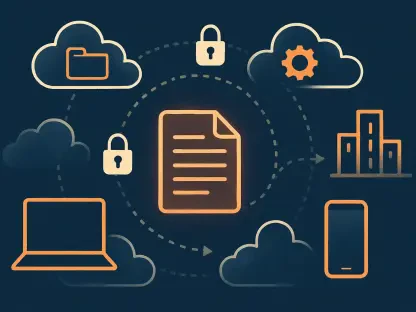In an era where digital tools are ubiquitous, teenagers find themselves navigating a world saturated with artificial intelligence (AI) and social media platforms, which raises critical questions about their impact on young minds. From crafting school essays with generative AI tools like ChatGPT to spending countless hours scrolling through TikTok, the integration of technology into daily life is undeniable. This pervasive presence prompts a critical examination of how such tools shape the cognitive abilities of young minds. As these technologies become entrenched in both educational settings and personal interactions, growing concerns emerge about their influence on critical thinking, attention spans, and emotional health. The stakes are particularly high during adolescence, a pivotal period for brain development, where the balance between leveraging technology and preserving essential skills hangs in a delicate equilibrium. This exploration seeks to unpack the nuanced effects of digital immersion, drawing from expert insights and research to illuminate the challenges and opportunities that lie ahead for today’s youth.
Unveiling the Risks of Digital Dependency
Cognitive Offloading and Its Impact on Learning
The phenomenon of cognitive offloading, where teens delegate intellectual tasks to AI tools, raises significant red flags about skill development. When students rely on platforms like ChatGPT to draft essays or solve complex problems, they bypass the mental rigor essential for fostering critical thinking and analytical abilities. This shortcut might offer immediate relief from academic pressures, but it risks creating a generation less equipped to tackle challenges independently. During adolescence, a time when the brain is primed for learning through effort and persistence, such reliance could stunt the growth of problem-solving skills that are crucial for future success. Educators note that the absence of struggle in learning processes deprives teens of opportunities to build resilience, leaving them vulnerable to gaps in foundational knowledge that are harder to bridge later in life.
Beyond the immediate academic implications, cognitive offloading may alter how young minds approach learning itself. The ease of accessing ready-made answers can foster a mindset of instant gratification, diminishing the patience required for deep research and reflection. This trend is particularly concerning in subjects that demand nuanced interpretation, such as literature or history, where personal engagement with material shapes unique perspectives. Without actively wrestling with ideas, teens might struggle to develop original thought, a cornerstone of intellectual maturity. The long-term effects could extend into professional realms, where innovative thinking and adaptability are prized. As AI becomes more sophisticated, the challenge lies in ensuring that its use enhances rather than replaces the cognitive processes that define human learning and growth.
Social Media’s Strain on Attention and Well-Being
Social media’s relentless pull on teenagers’ attention presents a formidable barrier to sustained focus and mental clarity. Neuroscience research highlights that prolonged exposure to fast-paced, fragmented content on platforms like TikTok can overwhelm the brain, mimicking the stress of constant multitasking. This overstimulation often results in mental fatigue, sometimes described as “brain fog,” which hampers the ability to concentrate on tasks requiring depth and continuity. For many teens, spending upwards of 12 hours daily on such apps correlates with heightened anxiety levels, further compounding cognitive challenges. The adolescent brain, still in a critical stage of wiring for attention and emotional regulation, may be particularly susceptible to these disruptions, raising alarms about lasting impacts on mental health.
The cognitive toll of social media extends beyond momentary distraction to potentially reshape how information is processed over time. The rapid-fire nature of short videos and endless scrolling trains the brain to prioritize quick, surface-level engagement over sustained thought, potentially weakening skills like critical analysis and memory retention. This shift is especially troubling during developmental years when habits of focus and discipline are formed. Additionally, the emotional strain from constant comparison and validation-seeking on these platforms can sap mental energy that could otherwise be directed toward learning or creative pursuits. As researchers delve deeper into these effects, there’s a pressing need to understand how such digital habits might alter neural pathways, possibly affecting academic performance and emotional resilience in the long run.
Exploring the Potential Benefits of Technology
Streamlining Tasks and Broadening Horizons
Despite the evident risks, technology holds promising potential to enhance cognitive growth when used judiciously. AI tools can handle repetitive or mundane tasks, such as formatting essays or summarizing data, thereby freeing up mental space for teens to engage in more complex, creative thinking. This efficiency could allow students to dive deeper into subjects that ignite their curiosity, potentially enriching their learning experiences. Similarly, social media platforms offer unparalleled access to diverse communities and ideas, exposing young users to perspectives beyond their immediate environments. When approached with intention, these connections can spark inspiration and foster a broader worldview, contributing to intellectual and emotional development in ways traditional settings might not.
The benefits of technology also lie in its ability to tailor learning to individual needs, offering personalized resources that adapt to different paces and styles. For instance, AI-driven educational apps can provide instant feedback on assignments, helping teens identify areas for improvement without delay. Meanwhile, social media can serve as a platform for collaborative learning, where peer-to-peer exchanges ignite critical discussions and collective problem-solving. However, realizing these advantages requires a framework where technology acts as a supplement rather than a substitute for core cognitive efforts. Without proper guidance, the risk of passive consumption looms large, potentially negating the very benefits these tools promise. Striking this balance is essential to ensure that digital aids empower rather than undermine young learners.
Fostering New Skills in a Digital Era
Some experts propose that technology, while challenging traditional cognitive skills, might cultivate new strengths suited to a tech-driven world. If the mental load reduced by AI is redirected toward innovative thinking or interdisciplinary problem-solving, teens could develop unique competencies that align with future demands. For example, navigating complex digital ecosystems might hone skills in data synthesis or adaptability, traits increasingly valued in modern workplaces. This perspective offers a glimmer of optimism, suggesting that cognitive evolution could accompany technological integration if guided thoughtfully, ensuring that young minds are not just consumers but creators in a digital landscape.
This potential for adaptation hinges on education systems evolving to teach critical engagement with technology. Teens must learn to discern the limitations of AI outputs, recognizing them as starting points rather than final answers, to preserve analytical depth. Similarly, understanding the psychological impacts of social media can empower them to set boundaries, preserving mental space for growth. Research suggests that when technology is framed as a tool for exploration rather than a crutch, it can inspire novel approaches to learning and collaboration. The challenge remains in equipping educators and students with the knowledge to harness these tools effectively, ensuring that the skills developed are not only relevant but also sustainable in an ever-changing digital environment.
Navigating Educational Challenges
Integrating Technology Without Losing Core Skills
Educators face an intricate puzzle in blending AI into classrooms while safeguarding the essence of learning. The convenience of generative AI tools often tempts students to produce generic, AI-crafted content, risking the loss of individual voice and intellectual depth. Many teachers express concern that this trend flattens original thought, as teens miss out on the formative process of crafting personal arguments or interpretations. To counter this, there’s a mounting push for structured policies that define technology’s role in education, ensuring it acts as an aid rather than a replacement for critical thinking. The goal is to create an environment where digital tools enhance learning without eroding the foundational skills needed for academic and personal growth.
Achieving this balance demands more than just rules; it requires a cultural shift in how technology is perceived in educational settings. Professional development for teachers is crucial, equipping them with strategies to integrate AI in ways that encourage active engagement rather than passive reliance. For instance, assignments could focus on critiquing AI-generated content, turning a potential shortcut into a learning opportunity. Additionally, fostering discussions about the ethical use of such tools can help students understand their limitations and biases. Without these measures, the risk of producing a generation unaccustomed to intellectual rigor grows, potentially impacting their ability to navigate complex challenges beyond the classroom. The education sector stands at a crossroads, needing to adapt swiftly to preserve the integrity of learning.
Emphasizing the Value of Mental Effort
The intellectual struggle of grappling with difficult concepts or articulating original ideas is often likened to mental weightlifting, a process deemed vital for cognitive fortitude. Teachers argue that this effort builds not only critical thinking but also resilience and personal expression, skills that AI cannot replicate. When technology takes over these challenges, teens miss pivotal growth experiences that shape their ability to think independently and creatively. This concern underscores the need to design curricula that prioritize active problem-solving over automated solutions, ensuring that students encounter and overcome intellectual hurdles as part of their development.
Preserving this mental effort also involves rethinking assessment methods to reward process over product. For example, grading could emphasize drafts, revisions, and reflective essays that reveal a student’s thought journey, rather than polished outputs that might mask AI assistance. Such approaches encourage teens to value the learning process, fostering a mindset of perseverance that extends beyond academics into life’s broader challenges. Moreover, integrating technology in ways that complement rather than circumvent struggle—such as using AI for brainstorming rather than final drafts—can maintain the integrity of intellectual growth. The education system must champion these principles to ensure that technology serves as a scaffold, not a shortcut, in shaping capable, thoughtful individuals.
Reflecting on a Path Forward
Looking back, the discourse surrounding AI and social media’s influence on teens’ cognitive skills revealed a complex interplay of risks and rewards. The evidence weighed heavily on the side of caution, with studies and educator testimonies highlighting how over-reliance on digital tools dulled critical thinking and how excessive screen time eroded focus. Yet, moments of optimism surfaced through insights into technology’s capacity to inspire new skills and connections when harnessed with intention. The consensus leaned toward a balanced approach, where technology augmented rather than supplanted human effort. Moving ahead, the focus should shift to actionable strategies—developing robust educational frameworks that teach critical engagement with AI and set healthy boundaries for social media use. Policymakers and schools must prioritize digital literacy programs that empower teens to navigate this landscape thoughtfully. By investing in guidance and training now, society can help ensure that the next generation not only adapts to a digital world but thrives within it, equipped with resilient, adaptable minds.









